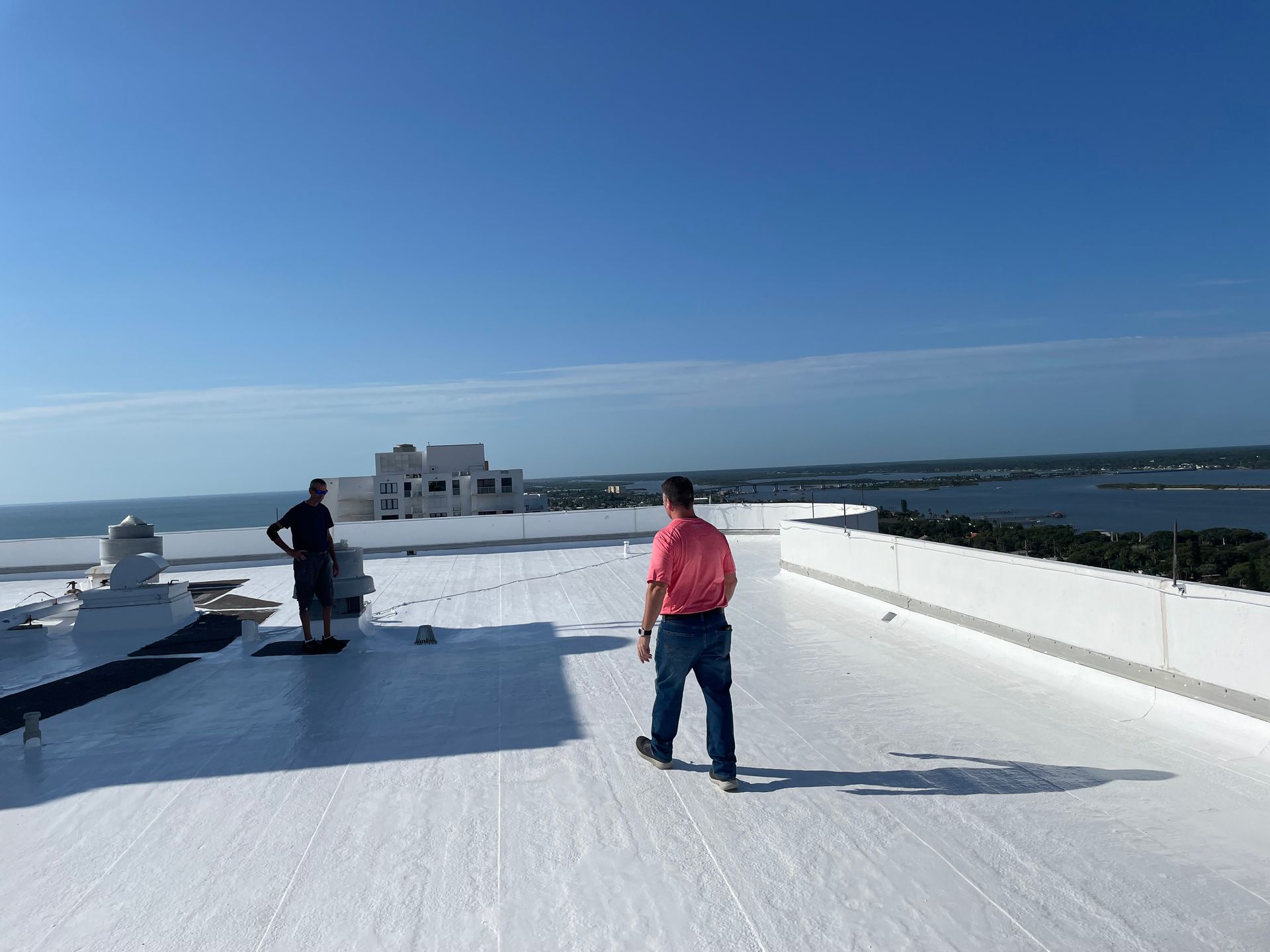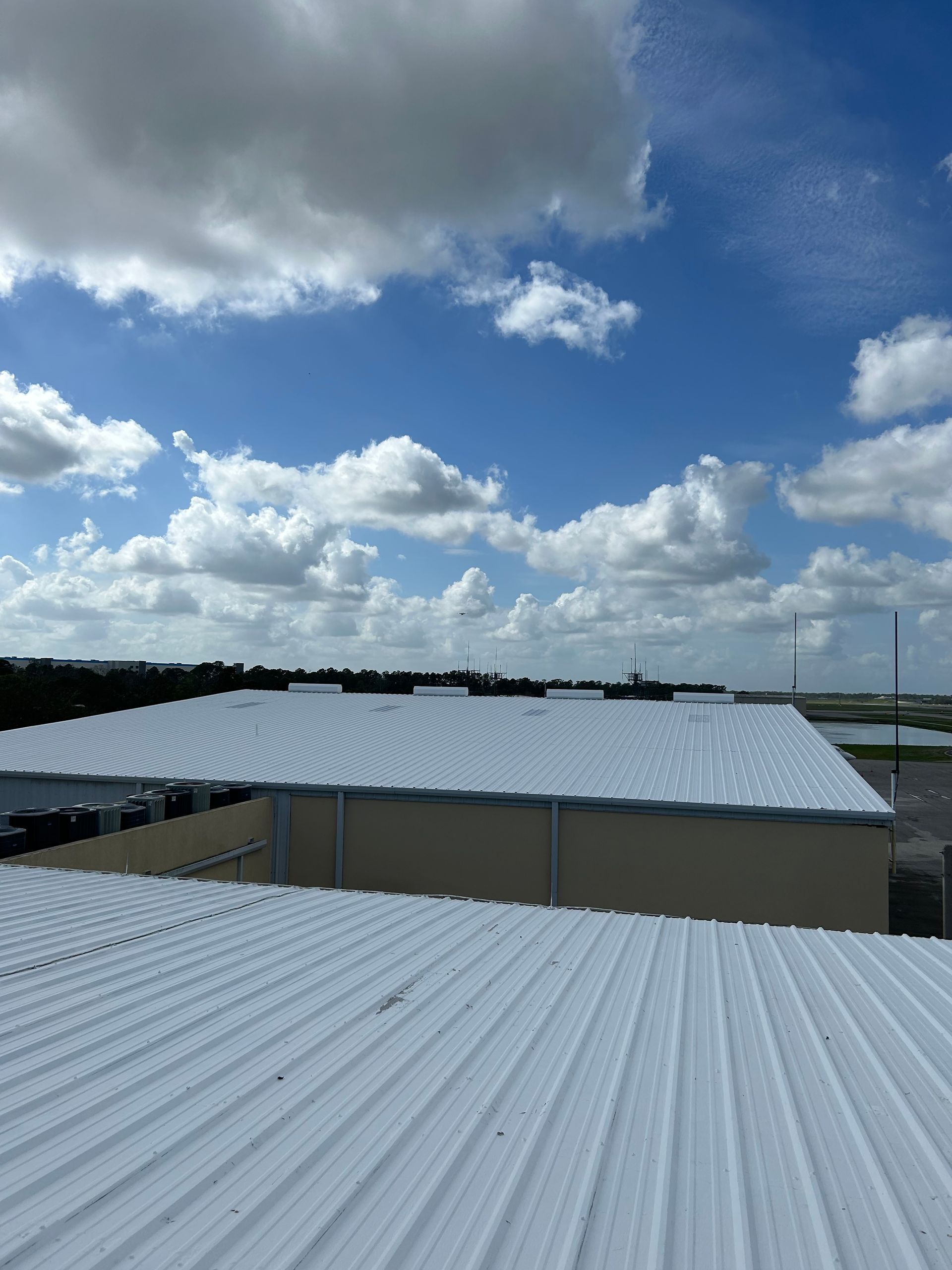What Is A Silicone Roof Coating?
Silicone Roof Coatings 101:
What They Are & Why They're Ideal for Flat Commercial Roofs

Silicone roof coatings have become a trusted solution for commercial roof restoration—and for good reason. Known for their durability, waterproofing capabilities, and resistance to UV damage, silicone coatings are a powerful option for extending the life of flat and low-slope commercial roofs.
A silicone roof coating is a fluid-applied membrane made from silicone polymers. Once applied, it cures into a seamless, rubber-like surface that adheres tightly to the existing roof material. This forms a durable barrier against water intrusion, UV rays, and harsh weather conditions. Because the coating is fully adhered and monolithic, it eliminates seams and gaps where leaks often start.
One of the key benefits of silicone roof coatings is their resistance to ponding water. Unlike many other coating types, silicone won’t degrade or blister when water sits on the surface for extended periods—making it ideal for flat commercial roofs that don’t drain perfectly.
Silicone is also highly reflective, which means it can help lower rooftop temperatures and reduce the strain on your building’s HVAC system. This reflective property can translate into noticeable energy savings over time, particularly in hot, sunny climates.
Another major advantage is that silicone coatings can be applied over many existing commercial roofing systems, including metal, single-ply membranes like EPDM or TPO, modified bitumen, and built-up roofs (BUR). This makes them a cost-effective alternative to full roof replacement, especially when the existing roof is structurally sound but aging or showing signs of wear.
In terms of longevity, a professionally applied silicone roof coating can last 15 to 20 years or more, depending on the thickness of the application and the environment. When the coating eventually begins to wear, it can often be recoated without removing the original layer—extending the roof’s life even further.
Silicone coatings do require a clean and properly prepared surface for best results, and some surfaces may need a primer before application. That’s why it’s important to work with a qualified commercial roofing contractor who understands the material and your building’s specific needs.
If your commercial roof is aging, leaking, or struggling with ponding water, a silicone roof coating might be the solution. It’s a smart way to protect your investment—without the cost and disruption of a full replacement.


